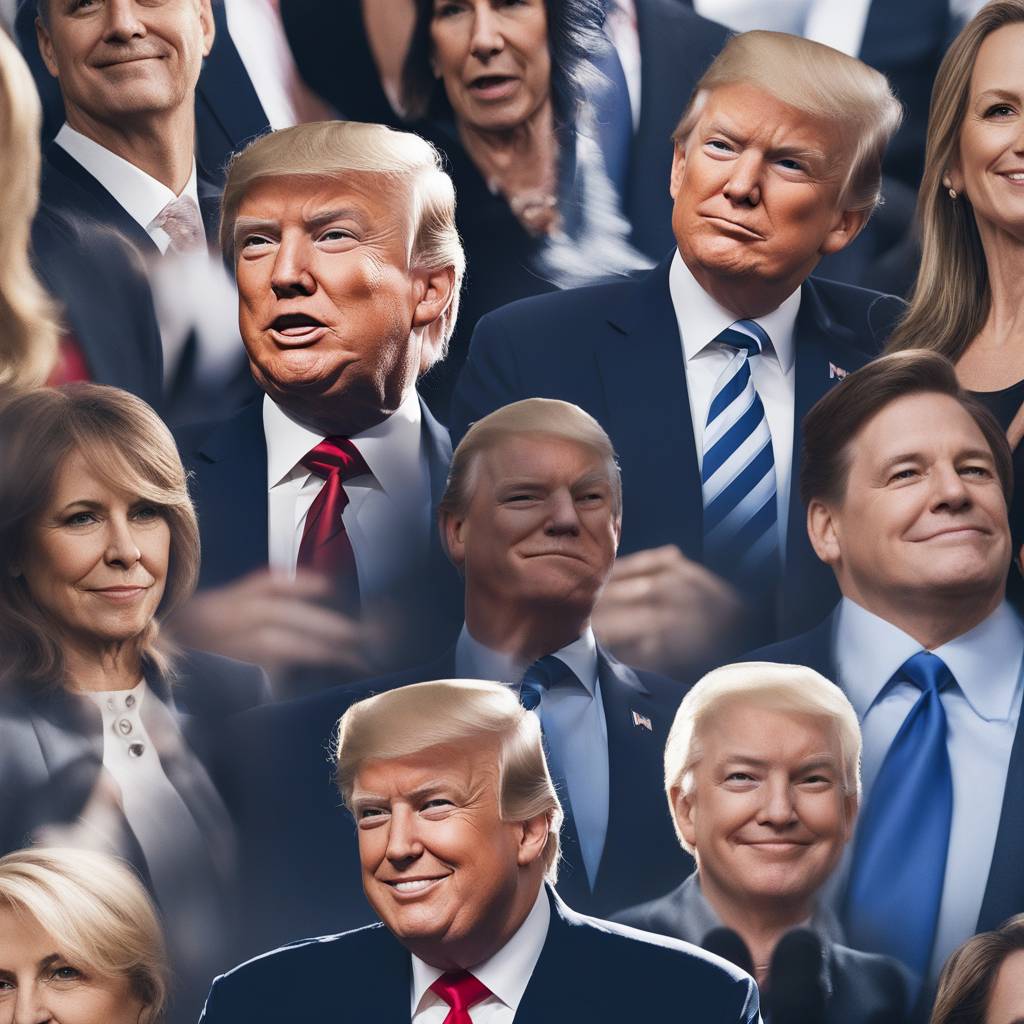South Dakota Governor Kristi Noem, Senator Tim Scott, and other potential candidates for Donald Trump’s running mate are facing a challenge as the former president’s stance on abortion evolves. Trump’s refusal to endorse a federal abortion ban and his support for exceptions such as rape and incest go against the beliefs of many anti-abortion advocates within the Republican Party. This shift in Trump’s stance on abortion is seen as a potential issue for Republicans as they seek to appeal to voters and navigate the abortion debate.
Trump is closely examining the positions of potential vice presidential candidates on abortion, particularly their stance on exceptions for victims of rape and incest. He has expressed disapproval for candidates who do not support these exceptions, characterizing it as a nonstarter. While some candidates like Kristi Noem have expressed support for Trump’s approach, others like Ohio Senator J.D. Vance have changed their views on abortion to align with Trump’s more pragmatic stance. The criteria for selection as Trump’s running mate is still unclear as he weighs candidates’ positions on abortion.
Various potential running mates, including Marco Rubio and J.D. Vance, have shown conflicting views on exceptions to abortion bans. While Rubio has supported bans even in cases of rape, he is open to legislation that includes exceptions due to the practicality of passing such laws. Vance, on the other hand, recognizes the need for exceptions for cases like the mother’s life or instances of rape. This diversity of views within the Republican Party reflects the ongoing debate over abortion and the challenges faced by candidates seeking Trump’s support.
Trump’s recent comments on abortion, including support for states deciding their own abortion laws, have stirred controversy within the anti-abortion community. Some leaders, such as Marjorie Dannenfelser, have expressed disappointment in Trump’s stance on the issue. The potential implications of Trump’s approach were evident in the Arizona Supreme Court ruling upholding a 160-year-old law restricting abortions. This decision has sparked debate within the Republican Party and highlights the ongoing battle over abortion policy.
The shift in Trump’s stance on abortion presents a challenge for Republicans seeking to align with his views while also appeasing anti-abortion advocates. Trump’s willingness to consider exceptions to abortion bans has created a rift within the party, with some leaders voicing support for his position while others express disappointment. As potential vice presidential candidates navigate this issue, they must balance their own beliefs with the evolving views of the former president and the broader Republican Party.
Despite the divisions within the party over abortion, Trump’s influence on the issue remains significant, with many potential running mates carefully considering their positions to align with his evolving stance. The debate over exceptions to abortion bans, the role of states in regulating abortion, and the potential impact on the upcoming election underscore the complex and evolving nature of the abortion debate within the Republican Party. As candidates vie for Trump’s support, they must navigate differing views on abortion to appeal to both the party’s base and the broader electorate.













